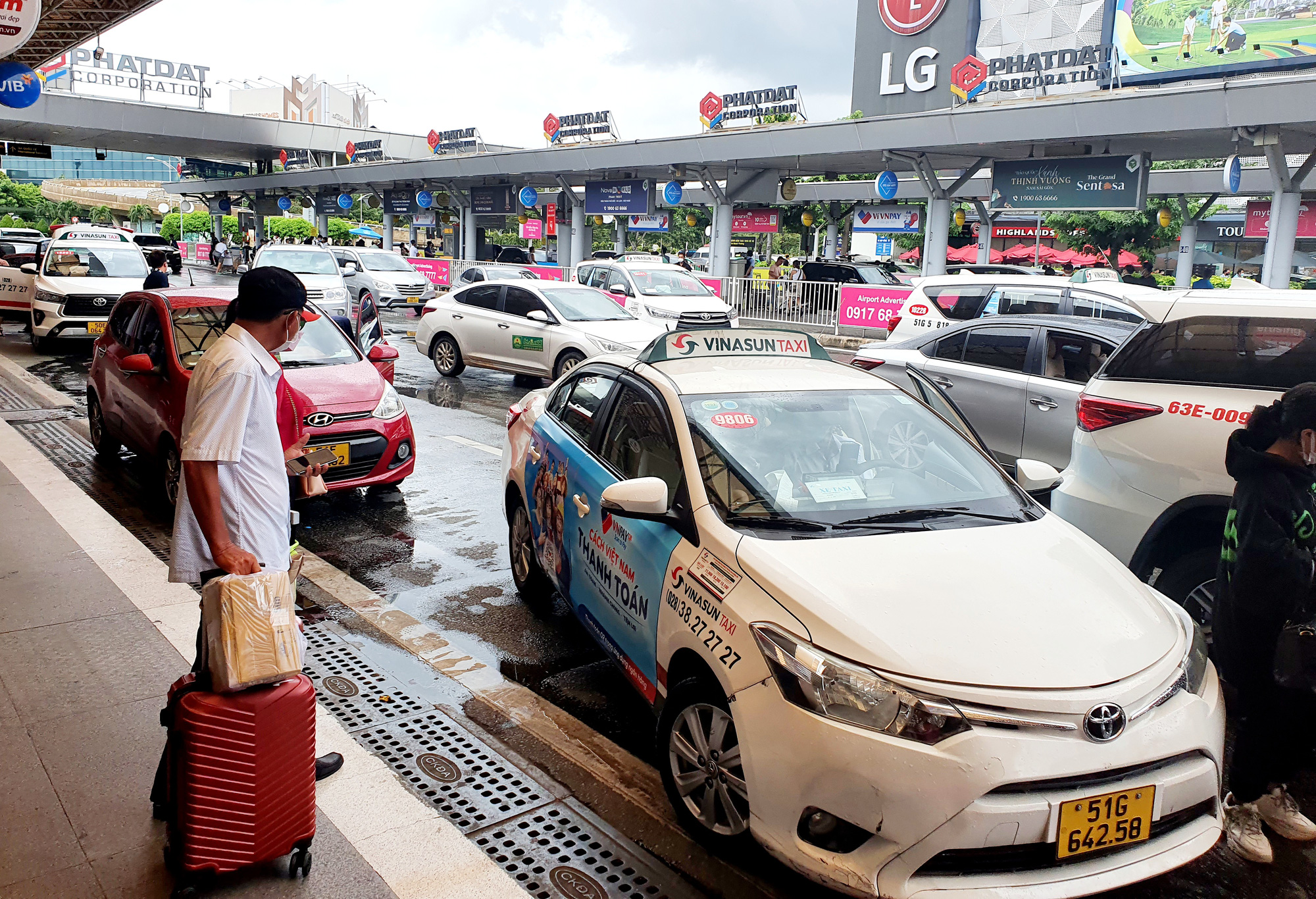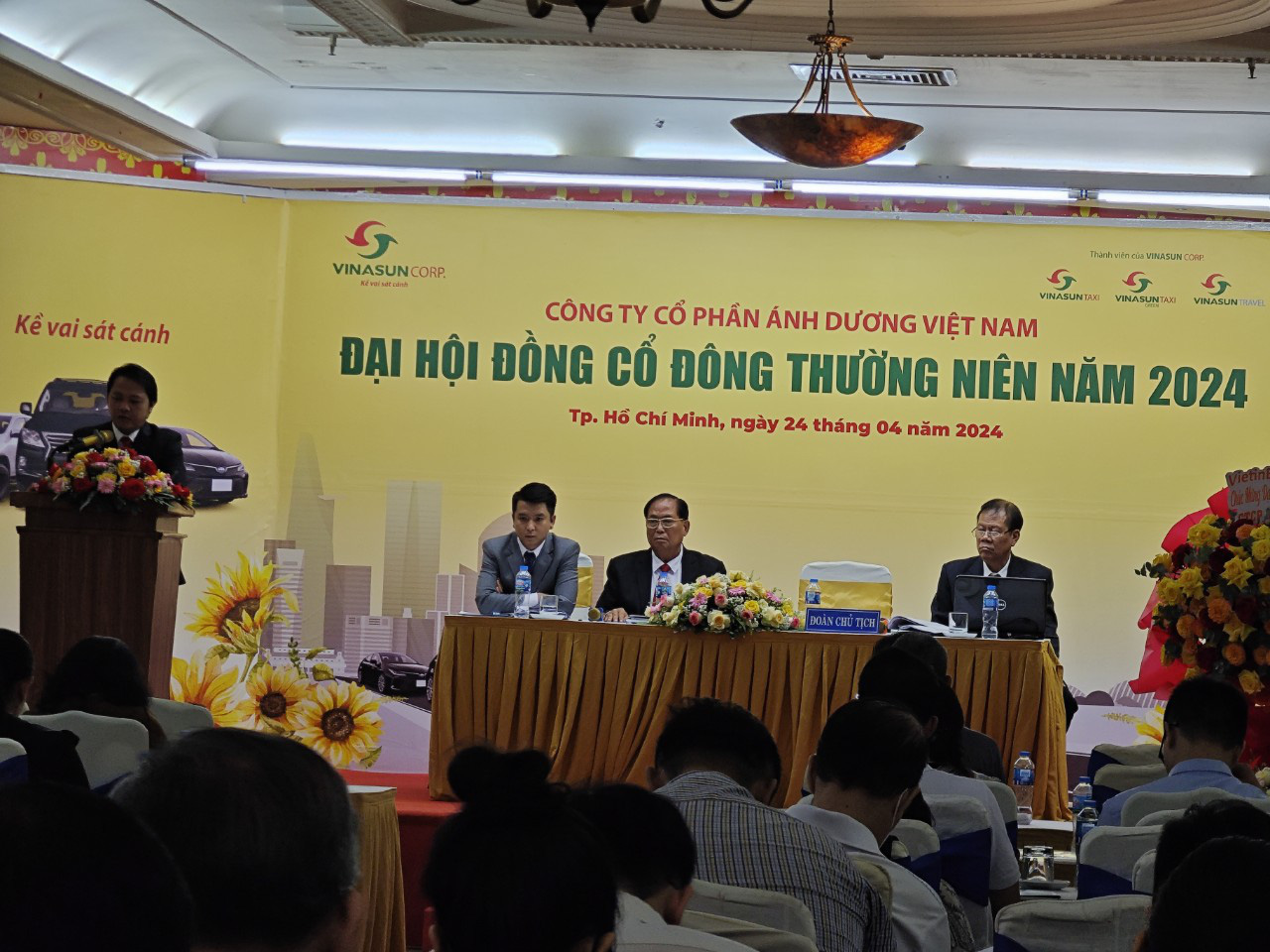Vietnamese taxi firm Vinasun is planning to invest VND630-650 billion (US$24.8-25.6 million) in purchasing 700 hybrid cars amidst a growing electric taxi trend.
The plan was discussed at Vinasun’s 2024 annual general meeting of shareholders held in Ho Chi Minh City on Wednesday.
Dang Thanh Duy, general director of Vinasun, revealed that two lenders, HSBC and Vietcombank, are prepared to finance the purchase of 700 hybrid Toyota cars for VND630-650 billion.
As part of the fleet upgrade, Vinasun has also decided to either liquidate 500 older vehicles or offer them to drivers on a deferred payment basis to operate under a franchise model.
This move has led shareholders to question the effectiveness of the strategy.
Tran Anh Minh, deputy general director of Vinasun, noted that the firm had cautiously evaluated investment in electric vehicles (EVs) at last year’s shareholders’ meeting.
The company has since adjusted its approach.
Minh pointed out that EVs, such as those from Green SM – a taxi operator backed by Vietnamese EV maker VinFast – rely solely on a single operation and supply source.
In contrast, Vinasun has opted to test and potentially integrate hybrid vehicles, a move which better aligns with its current business model.
Minh also noted the global increase in Toyota’s hybrid car sales, which surged by 50 percent in 2023, suggesting that hybrids are currently a more practical choice.
The cost difference between investing in electric and hybrid vehicles is minimal, he added.
“Hybrids can reduce fuel consumption by up to 50 percent compared to traditional gasoline vehicles,” Minh stated.
“Electric vehicles cost about VND800 per kilometer, while hybrids cost about VND1,100-1,200 per kilometer and do not incur the opportunity cost of charging time.
“While competitors are idle during charging, Vinasun drivers can complete one to two additional trips.”
Moreover, Minh raised concerns about the operational procedures of using EVs as Vinasun vehicles undergo daily inspections before service, and currently there are no charging facilities that can accommodate 40-50 EVs simultaneously.
|
|
| Delegates attend Vietnamese taxi firm Vinasun’s 2024 annual general meeting of shareholders in Ho Chi Minh City, April 24, 2024. Photo: Cong Trung / Tuoi Tre |
However, in an interview with Tuoi Tre (Youth) newspaper following the meeting, a Vinasun executive stated that the company has not entirely dismissed EVs.
He revealed plans to potentially pilot three-wheeled EVs for passenger transport in the near future.
“This is currently just a research project,” the executive explained.
The firm is still exploring suitable vehicle models and refining the process to finalize the plan.
“The model under consideration will definitely be an EV,” the executive confirmed.
During Wednesday’s meeting, the company announced its projected financials for the coming year.
The company projects a total revenue of over VND1.1 trillion ($43.3 million), which represents a decrease of more than nine percent compared to last year.
The forecasted profit after tax is nearly VND81 billion ($3.2 million), almost 47 percent lower than last year.
In response to these challenges, Vinasun plans to continue diversifying its business strategies to better align with market demands, with a primary focus on markets in Ho Chi Minh City, the southern provinces of Binh Duong and Dong Nai, and the central city of Da Nang.
The company also aims to attract skilled workers and explore potential collaborations with businesses in transportation, technology, and consumer payments.
Like us on Facebook or follow us on Twitter to get the latest news about Vietnam!




















































